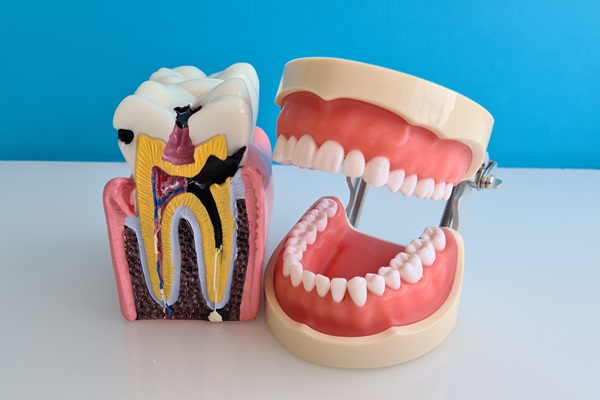When to Seek Treatment: Signs That You Might Need a Root Canal Specialist

A root canal specialist can correct any problems that affect the pulp cavity. The internal parts of the tooth affect its health. Issues that occur will need immediate treatment. Here are the signs that you may need treatment from your root canal specialist.
Temperature sensitivity
This happens when the individual consumes hot or cold foods and drinks. The pain can come as a sharp ache or a dull pain. It often goes away once the drinking or eating stops. But if the pain lasts for weeks, the root canal specialist may recommend performing a root canal therapy. This type of pain could mean that the nerves and blood vessels in the tooth are damaged or infected.
Constant dental pain
Stubborn dental pain is one of the clear signs one may need root canal therapy. This type of pain might cause an individual to lose focus. It might fade sometimes, but the pain returns. The individual may feel that the pain is deep inside the tooth’s bone. There could also be referred pain in the other teeth, the face, or the jaw. The root canal specialist can then recommend root canal therapy to relieve the pain.
Gum swelling
A painful tooth may have swollen gums beside it. This can be a sign of a problem that needs root canal therapy. This swelling may come and go. It may be tender and not painful. The issue may come from the acidic waste that comes from the dead pulp tissues. This could lead to inflammation outside the area of the root tip.
The tooth may also have a pimple on the gum tissue beside it. This is called an abscess, gum boil, or parulis. This pimple may ooze pus from the infected tooth. The individual then develops foul breath and an unpleasant taste in the mouth. The root canal specialist will then recommend a root canal treatment.
Discolored tooth
A pulp infection can cause tooth discoloration. Decay in the internal tissue or dental trauma can damage the tooth roots. This may cause the tooth to have a grayish-black coloration. The change in dental color can also come from inadequate blood supply. The root canal specialist will check the tooth and see if a root canal can resolve the issue.
Pain when touching the tooth or eating
Dental pain while eating or touching the tooth could mean that there is severe nerve damage or tooth decay. The root canal specialist may recommend a root canal if the pain does not go away or lasts for a long time. The pulp may already be dying. Hypersensitivity in the ligament around the dental root’s tip may occur. Root canal therapy can relieve this type of discomfort.
Dental damage
A dental crack or chip can introduce bacteria into the tooth. This can result in infection and swelling. The damage may not be visible at all, but the nerves and blood vessels may swell. This can cause sensitivity and pain. This could call for a trip to the root canal specialist.
Knowing when to seek help from a root canal specialist can improve your oral health
Pain will tell anyone that there is a problem with your tooth. Seeing a root canal specialist can determine the type of problem you have. It can also let you know if you need a root canal treatment. Working with your root canal specialist can help you regain your oral health and even your self-esteem.
Request an appointment here: https://www.palisades-endo.com or call Palisades Endodontics and Dental Implant Center at (201) 877-1190 for an appointment in our Fort Lee office.
Check out what others are saying about our dental services on Yelp: Root Canal Treatment in Fort Lee, NJ.
Related Posts
In many cases, root canal recovery is even simpler than the procedure itself. Patients who are nervous about their upcoming procedure have nothing to fear, as they will be able to return to their normal lives afterward. A root canal is an essential procedure that entails saving a patient’s tooth and keeping it functional over…
If your tooth suffers from disease in the roots, it typically means it will have to be extracted, that is, unless you can find an endodontist that offers endodontic therapy. In most cases of tooth damage, the tooth can be repaired by several different restorative procedures. However, when your tooth becomes a disease and the…
Endodontists can diagnose and treat a cracked tooth. A cracked tooth can occur at the most unexpected times, and understanding how to initially handle and promptly treat your injury can help prevent worsening concerns and the loss of the tooth. The most common symptoms of a cracked tooth include a physical sign of a crack,…
Tooth infection often results from poor oral care. Visiting your dentist for dental checks and professional dental cleaning should be part of your oral care routine. Brushing and flossing every day are important to maintain in between dental visits. Failure to do these often breeds dental problems. If you want to know how poor oral…
